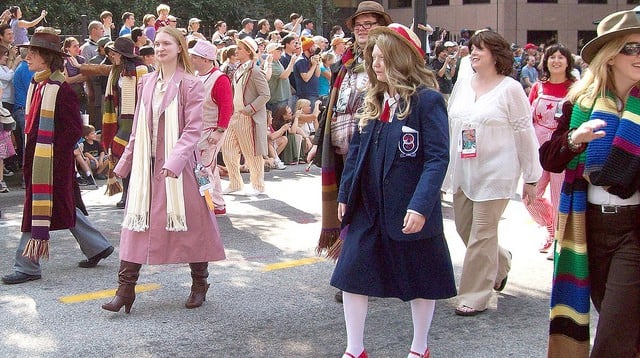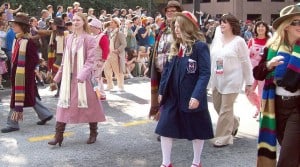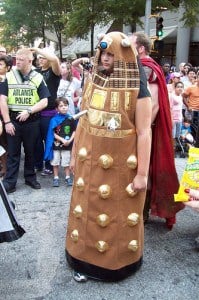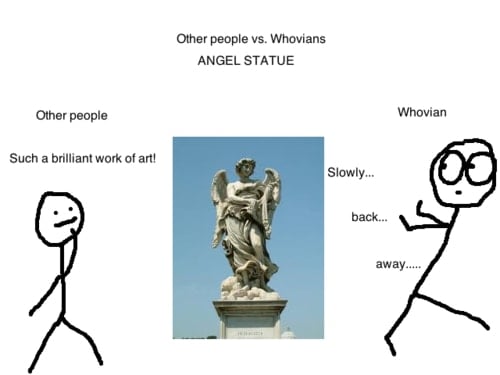Most of us like to feel part of the “In Crowd” as the Mamas and Papas first sang in the 60’s. But most of us have also experienced feeling like an outsider. So-called geeks and nerds, for example, were once clearly on the “outside” as depicted in the Revenge of the Nerds movie series. Today however, these outsiders have become more accepted as evidenced by the overwhelming popularity of Comic-Con and web sites such as the Nerdist with over 175,000 likes on Facebook.
Sometimes, though, the “nerds” don’t just get revenge; sometimes something even more remarkable happens, and “the stone that the builders rejected [becomes] the chief cornerstone” (Psalm 118). As we mark the 50th anniversary of Doctor Who today — the universe’s longest running science fiction television series — it might be worth thinking about how close this much-loved story, very much belonging to outsiders, came to being rejected entirely.
Doctor Who fans will be glued to their TV’s (or computers) watching the 50th anniversary special. Whovians will be watching An Adventure in Time and Space, which documents the genesis of the show. And Supreme Whovians have been listening to Toby Hadoke’s (free!) podcasts on Big Finish this past year. For better or worse, I count myself in the latter category of fandom.
Toby’s ambitious attempt to share one story from each episode of Doctor Who resulted in one particularly inspiring podcast. In Who’s Round #6, Toby interviews Waris Hussein about his role directing the first episode of Doctor Who. Waris, a British-Indian, knew what it felt like to be an “alien” while working at the BBC in the early 1960’s. About 19 minutes into the podcast, he relates how “three aliens” – the young Indian born director, the young woman producer (Verity Lambert) and the Canadian head of drama (Sydney Newman) – worked to establish the foundation for a fifty-year-old British institution.
Perhaps the reason that it took “aliens” to bring Doctor Who to an adoring British, and eventually American, public, is because they had their own experience of being outsiders, and recognized that something so far from the norm could still make a claim on the insiders. It’s a message we’ve heard before, and probably need to hear again: “love the alien as yourself, for you were aliens in the land of Egypt” (Lev 19:34). And what is more alien than Doctor Who – a show written by outsiders, about outsiders, that appeals to outsiders? In Toby’s other interviews, we learn that the more established writers and producers at the BBC did not want to touch the Doctor Who script, which seemed too new and different. Fortunately for us, “three aliens” picked up this rejected “stone” and created something loved by both insiders and outsiders.
Happy Birthday, Doctor Who!





